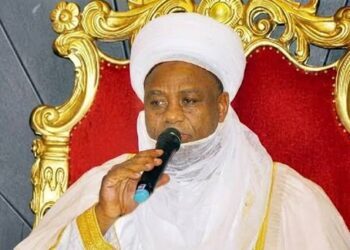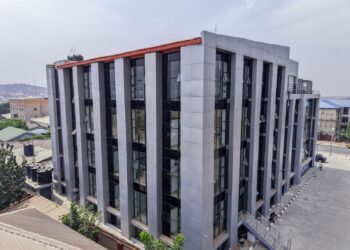The Federal Government on Monday in Abuja inaugurated the citizens’ assembly to foster inclusivity and grassroots representation in governance.
Mrs Abiodun Essiet, Senior Special Assistant to the President, Community Engagement (North Central), while inaugurating the assembly, said the initiative would bridge the gap between government and local communities.
Essiet explained that the citizens’ assembly was created to collectively tackle community problems and foster an inclusive society, where every voice is heard.
He added that the assembly offered structures across communities where residents could express their thoughts, share ideas, table pleas, and collaborate on lasting solutions to existing problems.
“While also planning proactively for future challenges, the Citizens’ Assembly provides a tremendous opportunity for citizen engagement, dialogue, collaboration, and peaceful resolution.
“It is committed to ensuring swift information dissemination, stakeholder engagement, project participation, and continuous deliberations for meaningful outcomes.”
She disclosed that nearly a thousand indigenes and settlers from the North Central region applied to volunteer for the assembly, which she described “as a noble cause.”
According to her, after a rigorous selection process, volunteers were chosen to represent at least one ward across the six states in the North Central Region and the FCT.
“These volunteers will serve as agents of change and influencers within their communities, developing actionable solutions and ensuring challenges are addressed at the highest levels.
“As we officially inaugurate The Citizens’ Assembly for the FCT today, and it will subsequently be inaugurated in Benue, Kogi, Kwara, Nasarawa, Niger, and Plateau State.”
She urged other government appointees and elected leaders to take a cue from this initiative.
“Let us replicate this model in our respective communities, states, and regions for our collective prosperity as a nation.”
He added that the assembly underscored President Bola Tinubu’s unwavering commitment to integrating diverse voices and perspectives into decision-making processes.
Essiet stated that the initiative would foster dialogue, understanding, and collaboration and proactively address regional needs and concerns.
“This decentralised approach to governance signifies a strong commitment to grassroots engagement and tailored development initiatives.
“It will reflect the unique challenges and opportunities present in each geopolitical zone of Nigeria.”
She explained that community engagement played a crucial role in building trust between the Federal Government and its citizens.
She added that community engagement established a direct connection, ensuring that the voices of the people were heard and considered in the corridors of power.
“To gain a clearer insight into the challenges facing our grassroots, we conducted a survey in March 2024, involving 166 respondents from the North Central region.
“These include Abuja, Benue, Kogi, Kwara, Nasarawa, Niger, and Plateau states. The findings revealed a significant disconnect between the Federal Government and local communities.
“For instance: 48.2 per cent of participants perceive a lack of engagement from the Federal Government, while 78.3 per cent feel unrepresented in the government’s policies and decision-making processes.
“62.1 per cent consider community engagement organisations effective. 68.7 per cent believe the government does not consult with local communities before implementing projects.”
She, however, said that nearly 90 per cent believed that co-creation could lead to more sustainable and contextually relevant solutions.
“These findings clearly indicate a substantial gap in trust and communication between the Federal Government and local communities.
“This is a gap stemming from unfulfilled promises by successive governments over the past 25 years since the return to democratic rule.”
Alhaji Mohammed Idris, the Minister of Information and National Orientation, said since assumption of office, President Tinubu’s led administration had been working round the clock to better the lives of Nigerians.
Dr Mohammad Bulama, represented by the Director-General, Federal Radio Corporation of Nigeria (FRCN), said the National Assembly passed the N70,000 minimum wage bill approved and transmitted by Tinubu.
He said,” the minimum wage will be reviewed every three years to reflect and reconcile fresh economic realities and living standards with workers’ remuneration.
“This will succeed the current N35,000 wage award that is being paid to all federal workers.
“To swiftly commence the payment of the new minimum wage, the National Assembly has also approved N6.2 trillion supplementary budgets sent to it by the Federal Government.
“Out of which, about N3 trillion will be expended to cover the minimum wage and augmented salaries payment.”
He said Tinubu’s landmark move to implement Local Government Autonomy by approaching the Supreme Court for a decisive verdict was a testament to his administration’s commitment to strengthen governance and development at the grassroots.
“With this game-changing institutional empowerment, local governments will witness unprecedented socio-economic transformation.
“The Federal Government will ensure that the Supreme Court judgment is enforced as intended.” (NAN











